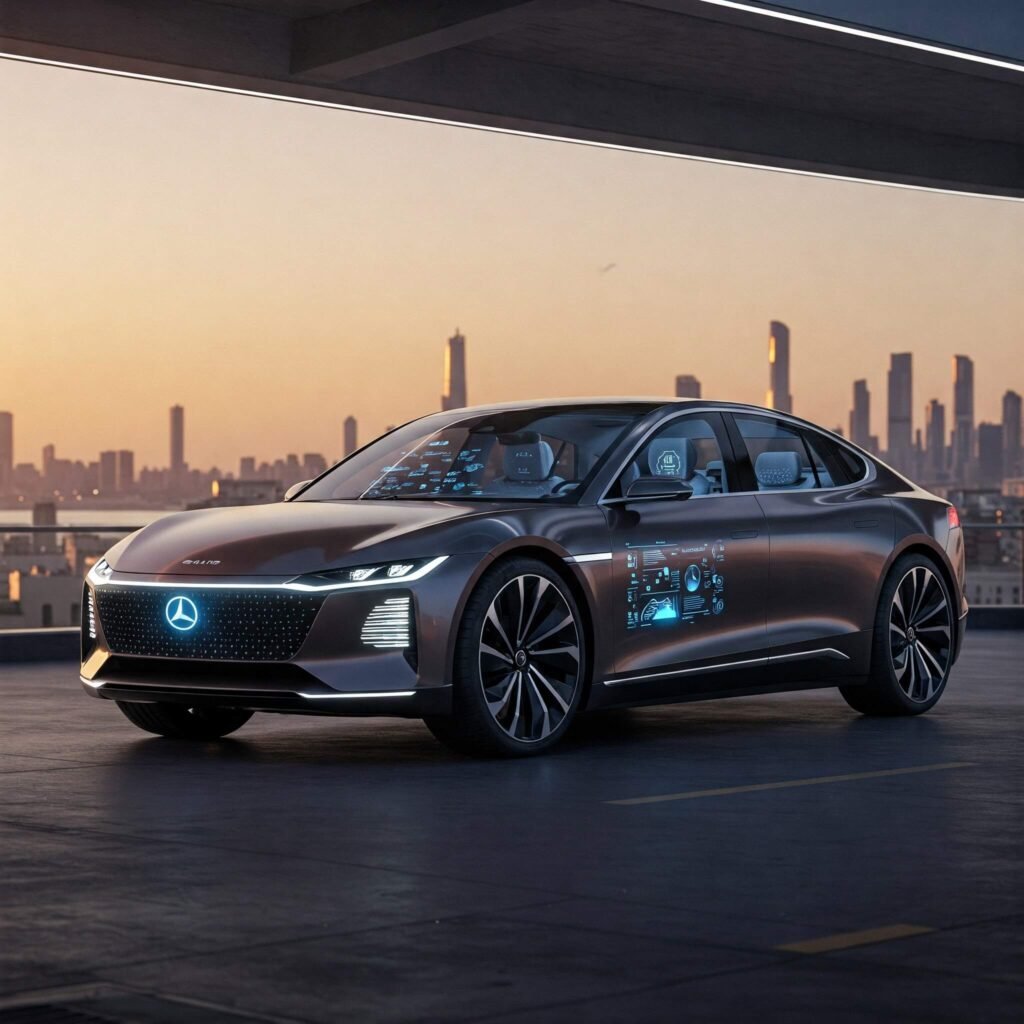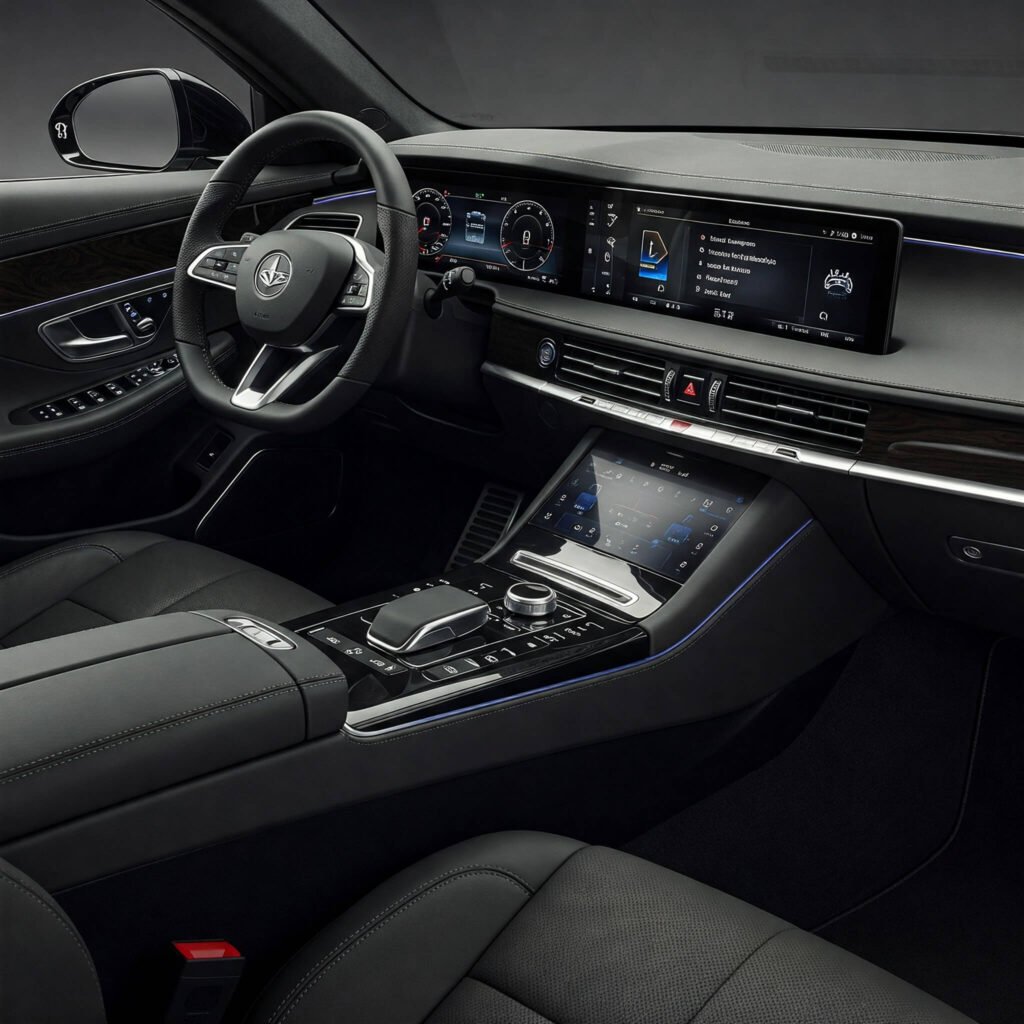The world of luxury electric vehicles is no longer a one-horse race. While Tesla has undeniably paved the way and captured the early market, a growing number of compelling contenders are vying for the attention (and wallets) of discerning drivers. This article dives deep into the current landscape of luxury electric vehicles, comparing Tesla’s offerings with the rising competition and exploring what the future holds for this electrifying segment.
The Reign of Tesla: A Look Back and Forward in Luxury EVs
Tesla’s impact on the automotive industry is undeniable. They didn’t just build electric cars; they redefined what a car could be – a tech-forward, software-driven experience. Models like the Model S, Model 3, Model X, and Model Y have set benchmarks for range, performance, and charging infrastructure. Their Supercharger network remains a significant advantage.
However, the landscape of luxury electric vehicles is rapidly evolving. Established luxury automakers and ambitious startups are launching their own high-end EVs, often boasting superior craftsmanship, cutting-edge technology, and unique design philosophies.
The Budding Competition in the Luxury Electric Vehicle Market
Several manufacturers are now directly challenging Tesla in the luxury electric vehicles arena. Here are some key competitors and their strengths:
- Mercedes-Benz: With models like the EQS and EQE sedans and SUVs, Mercedes-Benz brings its century-long legacy of luxury, comfort, and sophisticated technology to the electric segment. Their focus on opulent interiors and advanced driver-assistance systems is a strong draw.
- BMW: The iX SUV and i4 Gran Coupe represent BMW’s foray into luxury electric vehicles, blending their renowned driving dynamics with electric power. Expect sporty handling and premium materials.
- Audi: Audi’s e-tron lineup, including the e-tron SUV, e-tron GT, and Q4 e-tron, offers a compelling combination of stylish design, refined interiors, and quattro all-wheel drive, appealing to those seeking a familiar luxury experience in an electric package.
- Porsche: The Taycan has emerged as a serious rival to the Tesla Model S, offering exhilarating performance and Porsche’s iconic design and handling prowess in the luxury electric vehicles market.
- Lucid Motors: Lucid Air boasts impressive range and luxurious interiors, positioning itself as a direct competitor to the high-end Tesla models. Their focus on efficiency and spaciousness is noteworthy.
- Rivian: While starting with electric trucks and SUVs, Rivian’s adventure-focused, premium EVs are attracting a different segment of the luxury electric vehicles buyer who values off-road capability and a rugged yet refined experience.

Key Factors to Consider When Choosing a Luxury Electric Vehicle
When deciding between Tesla and the competition in the luxury electric vehicles market, several factors come into play:
- Range and Charging Infrastructure: Tesla’s Supercharger network remains a significant advantage, offering widespread and reliable fast charging. However, other manufacturers are partnering with charging networks, and range anxiety is becoming less of a concern across the board.
- Performance: Both Tesla and its competitors offer impressive acceleration and performance figures. The “best” in this category often comes down to personal preference in terms of driving dynamics.
- Technology and Software: Tesla has been a leader in in-car technology and over-the-air updates. While competitors are catching up, Tesla’s integrated software ecosystem still holds a strong appeal for many.
- Luxury and Comfort: Traditional luxury automakers like Mercedes-Benz, BMW, and Audi often excel in interior materials, build quality, and ride comfort, offering a more traditional luxury experience compared to Tesla’s minimalist approach.
- Design and Styling: Aesthetics are subjective, but the growing variety in the luxury electric vehicles market means there’s likely a design that appeals to every taste, from Tesla’s sleek modernity to the more classic elegance of European automakers.
- Price: The price range for luxury electric vehicles varies significantly. Tesla and its competitors offer models across different price points within the luxury segment.
The Future of Luxury Electric Vehicles: More Competition and Innovation
The future of luxury electric vehicles is bright and increasingly competitive. We can expect:
- More Entrants: More established automakers and startups will enter the market, further diversifying the options available to consumers.
- Technological Advancements: Battery technology will continue to improve, leading to longer ranges and faster charging times. Autonomous driving features will also become more sophisticated.
- Focus on Sustainability: Beyond just electric powertrains, manufacturers will increasingly focus on sustainable materials and manufacturing processes.
- Personalized Experiences: Expect more customization options and a greater emphasis on the digital integration of the vehicle with the driver’s lifestyle.

Conclusion: Navigating the Expanding World of Luxury EVs
The landscape of luxury electric vehicles is no longer solely dominated by Tesla. While they remain a powerful force, a growing array of compelling alternatives offers consumers more choices than ever before. Whether you prioritize cutting-edge technology, traditional luxury, exhilarating performance, or unique design, the expanding market for luxury electric vehicles has something to offer. As the competition intensifies, the ultimate winners will be the consumers who benefit from greater innovation and a wider selection of exceptional electric vehicles.







































